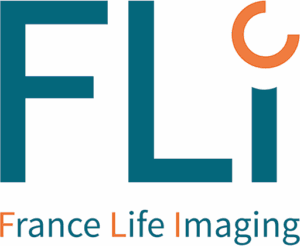2020/06/17 – Doctorat « Positron Emission Tomography Image Reconstruction »
Contexte et mission :
Context and objectives.
Nuclear imaging, especially positron emission tomography (PET), is a powerful tool of nuclear medicine in oncology. The development of multimodality (PET-CT, PET-MR) along with advances in PET technology enable ever-increasing precision and accuracy in the quantification of molecular processes in vivo. However, PET measurements do not directly lead to images and a complex inverse tomographic problem has _first to be solved. This task of tomographic reconstruction is essential in PET as it may have a significant impact on image quantification, and thus the outcome. In this context, this PhD project focus on the development of innovative tomographic image reconstruction methods in order to tackle current and future challenges raised by applications where the recorded signal is weak.
Our team has a recognized expertise in 90Y PET imaging for postinfusion quantitative assessment following radioembolization therapy in liver cancer [1]. The challenge of this application is to be able to evaluate the delivered dose inside and outside the targeted lesions, from the reconstruction of the
90Y PET signal [2]. This signal is characterized by very few interesting events hidden in a high level of background events [3, 4], making the tomographic reconstruction problem very ill-posed. From current state-of-the-art methods, reconstructed images su_er from high levels of noise and local bias, which do not allow for precise dosimetry.
In the continuation of the efforts lead by the team, the candidate will work on the development and evaluation of methods adapted to this challenging application. The PhD project has two main objectives.
The first objective is to build innovative PET reconstruction algorithms allowing to further optimize the compromise between bias and noise, as compared to currently investigated algorithms. These algorithms could be driven by the flexible -divergence [5] and include a penalty term based on the recently proposed deep image prior [6]. The second objective is to develop a method able to associate confidence values on dosimetry measurements extracted from the reconstructed PET images. As PET images intrinsically suffer from inaccuracy and/or imprecision, being able to deliver confidence values or intervals associated to them seems natural but is a challenge. The developments would be based on recently proposed bayesian posterior bootstrap methods [7] that provided promising preliminary results when applied to PET reconstruction.
Current protocols are running on PET/CT scanners. A hybrid PET/MR scanner will be installed in 2021 at the University Hospital. Future patients treated with 90Y will benefit from the use of this scanner for improved liver imaging thanks to MR. The use of MR information in the PET reconstruction process and the estimation of confidence values is of particular interest. Taking advantage of multimodality will be an integrated part of the PhD project.
The position is funded by iemens Healthineers (these Cifre). The collaboration between Siemens Healthineers and the University Hospital is of long duration. The project will also be conducted in partnership with the Numerical Science Laboratory in Ecole Centrale Nantes and will be associated with the work done by a current PhD student.
Diplômes requis :
The candidate must hold a master degree in Physics, Computer Science or Applied Mathematics
Compétences requises :
Candidates must hold at least an upper second class degree or equivalent qualifications in a relevant subject area such as physics, biomedical engineering, computer science, or applied mathematics to apply to this interdisciplinary project with clinicians, IT specialists, and medical physicists. A master’s degree in a relevant discipline and additional research experience would be an advantage.
Rémunération :
The position is funded by Siemens Healthineers (these Cifre).
Structure :
Equipes d’accueil
• University Hospital of Nantes, Nuclear Medicine Department
• French Institute of Health and Medical Research (INSERM, CRCINA, Nuclear Oncology Team)
• Siemens Healthineers
Supervision:
. Dr Thomas Carlier (thomas.carlier[at]chu-nantes.fr )
. Dr Simon Stute (simon.stute[at]chu-nantes.fr )

